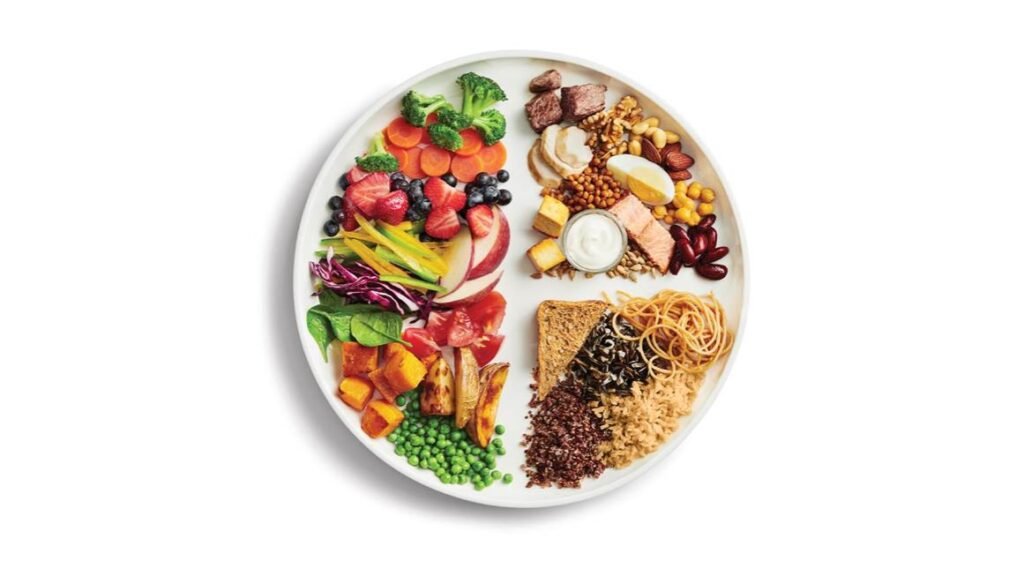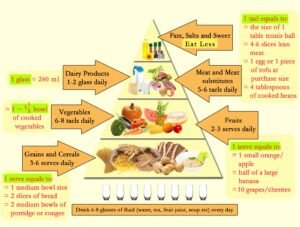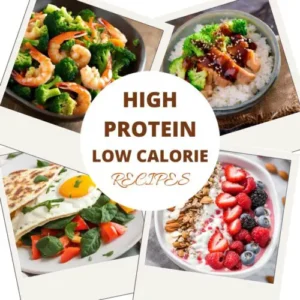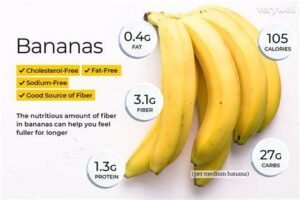Unlock Your Inner Champion: The Power of Maximum Edge Nutrition
Have you ever felt like you’re giving it your all but still falling short? Sometimes, the key to unlocking your full potential lies not in your training or skills, but in what you put on your plate. That’s right, maximum edge nutrition plays a vital role in fueling your body and mind for peak performance.
Imagine your body as a high-performance machine. To run at its best, it needs the right fuel. Whole, unprocessed foods are like premium gasoline for your body. They provide essential nutrients, vitamins, and minerals that help your body function optimally. Think of fruits, vegetables, lean proteins, whole grains, and healthy fats as the building blocks of a champion’s diet.
Fuel Your Performance with Maximum Edge Nutrition
When you choose whole foods, you’re not just fueling your body; you’re also nourishing your mind. Studies have shown that a healthy diet can improve cognitive function, memory, and concentration. So, the next time you’re feeling sluggish or foggy-headed, consider what you’ve been eating.
Remember, quality over quantity is key. It’s better to focus on eating a variety of nutrient-dense foods rather than consuming excessive amounts of processed junk. Your body will thank you for it!
Nutrition Hack 1: Fuel Your Body with Whole, Unprocessed Foods
The foods you choose have a profound impact on your overall health and well-being. One of the most important things you can do for your body is to prioritize whole, unprocessed foods.
What is Whole Foods?
Whole foods are those that have been minimally processed and retain their natural nutrients. They are packed with vitamins, minerals, fiber, and other essential compounds that your body needs to thrive. In contrast, processed foods are often loaded with unhealthy additives, artificial sweeteners, and excessive amounts of unhealthy fats and sodium.

Types of Whole Foods:
Here are some examples of whole foods that you should aim to include in your diet:
- Fruits: Apples, berries, bananas, citrus fruits
- Vegetables: Spinach, broccoli, carrots, sweet potatoes
- Whole grains: Brown rice, quinoa, whole-wheat bread
- Lean protein: Chicken, fish, beans, lentils
- Healthy fats: Avocado, nuts, seeds, olive oil
The Power of Whole Foods:
By choosing whole foods, you’re providing your body with the nutrients it needs to function at its best. This can help improve your energy levels, boost your immune system, and reduce your risk of chronic diseases.
Remember, the key to optimal health is a balanced diet that includes a variety of whole foods. By making the switch to whole foods, you’re taking a step towards a healthier, happier you.
Nutrition Hack 2: Prioritize Protein for Muscle Repair and Growth
Whether you’re an athlete, a fitness enthusiast, or simply looking to maintain a healthy body, protein is your secret weapon. This essential macronutrient plays a crucial role in building and repairing muscle tissue.
Build Your Muscles, Fuel Your Goals: The Power of Protein
When you exercise, your muscles undergo microscopic tears. Protein provides the building blocks needed to repair and rebuild those muscles, making them stronger and more resilient.

It’s important to consume enough protein throughout the day to support muscle growth and recovery. The exact amount you need will depend on factors such as your age, weight, activity level, and goals.
- Question: “How much protein do I need?”
- Answer: While individual needs vary, a general guideline is to aim for 0.8 grams of protein per kilogram of body weight. For example, a 70kg person would need approximately 56 grams of protein per day.
Sources of Protein:
Here are some excellent sources of protein:
- Lean meats: Chicken, turkey, fish
- Eggs: A complete protein source
- Dairy products: Greek yogurt, cottage cheese, milk
- Legumes: Beans, lentils, chickpeas
- Tofu and tempeh: Plant-based protein sources
By incorporating these protein-rich foods into your diet, you can help your muscles grow stronger and recover more efficiently.
Nutrition Hack 3: Stay Hydrated for Optimal Function
Water is often overlooked as a nutrient, but it’s just as essential as protein, carbohydrates, and fats. Staying hydrated is crucial for optimal physical and cognitive performance.
The Importance of Hydration:
Your body is made up of about 60% water. When you’re dehydrated, it can affect everything from your energy levels to your mood. Adequate hydration is essential for:
- Regulating body temperature: Sweat helps cool your body down during exercise.
- Transporting nutrients: Water helps deliver nutrients to your cells.
- Lubricating joints: Hydration is essential for joint health.
- Improving cognitive function: Dehydration can lead to fatigue, difficulty concentrating, and even headaches.

- Question: “How much water should I drink?”
- Answer: The general recommendation is to aim for at least eight glasses of water per day. However, individual needs may vary depending on factors like your activity level, climate, and overall health.
Tips for Staying Hydrated:
Here are some tips for staying hydrated throughout the day:
- Carry a water bottle: Keep a reusable water bottle with you at all times.
- Drink before you’re thirsty: Don’t wait until you’re feeling thirsty to drink water.
- Eat hydrating foods: Fruits and vegetables contain a high water content.
- Limit sugary drinks: Excessive intake of sugary drinks can lead to dehydration.
By prioritizing hydration, you can improve your overall health, enhance your performance, and feel your best.
Nutrition Hack 4: Mindful Eating for Balanced Nutrition and Satisfaction
In today’s fast-paced world, it’s easy to mindlessly consume food. But by practicing mindful eating, you can improve your relationship with food, nourish your body, and achieve a greater sense of satisfaction.
Eat Mindfully, Live Fully: The Power of Conscious Consumption
Mindful eating involves paying attention to your body’s hunger and fullness cues, savoring the flavors and textures of your food, and eating without distractions. It’s about tuning in to your body and listening to its needs.

Tips for Mindful Eating:
Here are some tips for practicing mindful eating:
- Eat slowly: Take small bites and chew thoroughly.
- Put down your phone: Avoid distractions while eating.
- Focus on the taste and texture: Pay attention to the sensory experience of eating.
- Listen to your body: Eat when you’re hungry and stop when you’re full.
- Question: “How can I deal with stress eating?”
- Answer: Stress eating can be a common coping mechanism. If you find yourself turning to food to manage stress, try these strategies:
- Identify triggers: Pay attention to what situations or emotions lead you to stress eat.
- Find healthy alternatives: Instead of reaching for unhealthy foods, try engaging in stress-relieving activities like exercise, meditation, or deep breathing.
- Practice mindful eating: Focusing on the experience of eating can help you tune in to your body’s hunger cues and avoid overeating.
- Answer: Stress eating can be a common coping mechanism. If you find yourself turning to food to manage stress, try these strategies:
By practicing mindful eating, you can develop a healthier relationship with food and improve your overall well-being.
Nutrition Hack 5: Optimize Micronutrient Intake for Overall Health
While macronutrients like protein, carbohydrates, and fats are essential for energy and building blocks, micronutrients, such as vitamins and minerals, are equally important for optimal health. These essential nutrients play a vital role in various bodily functions, from boosting your immune system to supporting bone health.
Micronutrients: The Hidden Heroes of Your Health
Micronutrients are found in small amounts in foods, but they have a big impact. They are involved in everything from energy production to cell repair. Without adequate micronutrient intake, you may experience fatigue, weakened immune function, and other health problems.

- Question: “What is the best source of vitamin D?”
- Answer: Vitamin D is primarily produced by the body when exposed to sunlight. However, it can also be found in certain foods, such as fatty fish (like salmon), egg yolks, and fortified dairy products. If you have limited sun exposure, consider taking a vitamin D supplement after consulting with your healthcare provider.
Tips for Micronutrient Intake:
Here are some tips for ensuring adequate micronutrient intake:
- Eat a variety of fruits and vegetables: These are excellent sources of vitamins, minerals, and antioxidants.
- Choose whole grains: Whole grains provide essential nutrients like B vitamins and fiber.
- Include lean protein sources: Protein-rich foods like poultry, fish, beans, and lentils contain essential minerals.
- Consider a multivitamin: If you’re concerned about meeting your micronutrient needs, a multivitamin can be a helpful supplement.
- Pay attention to your overall diet: A balanced diet that includes a variety of foods is the best way to ensure adequate micronutrient intake.
By prioritizing micronutrient intake, you can support your overall health and well-being.
Take Action, Achieve Maximum Edge Nutrition
By incorporating these five nutrition hacks into your daily routine, you can significantly improve your overall health and performance. Remember, it’s not about making drastic changes but rather making small, sustainable adjustments that can have a big impact.
Recape:
Let’s recap the key points:
- Fuel your body with whole, unprocessed foods.
- Prioritize protein for muscle repair and growth.
- Stay hydrated for optimal function.
- Practice mindful eating for balanced nutrition and satisfaction.
- Optimize micronutrient intake for overall health.

Maximum Edge Nutrition Strategies:
By implementing these nutrition strategies, you can:
- Boost your energy levels.
- Improve your focus and concentration.
- Enhance your athletic performance.
- Support your immune system.
- Reduce your risk of chronic diseases.
Click to see
Additional Tips:
- Listen to your body: Pay attention to your hunger and fullness cues.
- Seek professional advice: If you have specific health concerns or dietary restrictions, consult with a registered dietitian.
- Be patient: Making changes to your diet takes time. Be patient with yourself and celebrate your progress.
Ready to take your health and performance to the next level? Start implementing these nutrition hacks today and experience the incredible benefits firsthand. Remember, the key to maximum edge is a well-nourished body.





